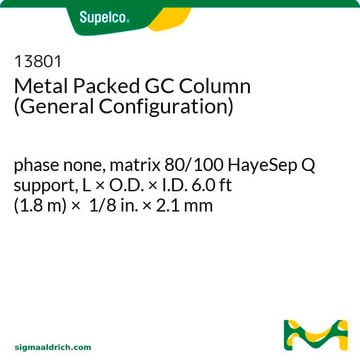MAB8258
Anti-Influenza A Antibody, nucleoprotein, clone A3
clone A3, Chemicon®, from mouse
Sign Into View Organizational & Contract Pricing
All Photos(1)
About This Item
UNSPSC Code:
12352203
eCl@ss:
32160702
NACRES:
NA.41
clone:
A3, monoclonal
application:
IF
species reactivity:
human
technique(s):
immunofluorescence: suitable
citations:
26
Recommended Products
biological source
mouse
Quality Level
antibody form
purified immunoglobulin
antibody product type
primary antibodies
clone
A3, monoclonal
species reactivity
human
manufacturer/tradename
Chemicon®
technique(s)
immunofluorescence: suitable
isotype
IgG
shipped in
wet ice
Specificity
Specific for the influenza A nucleoprotein. Stronger reactivity is observed with N2/N3-type Flu A strains. No cross reactivity seen to Influenza B or other respiratory viruses.
Immunogen
Epitope: nucleoprotein
Influenza A
Application
Detect Influenza A using this Anti-Influenza A Antibody, nucleoprotein, clone A3 validated for use in IF.
Indirect Immunofluorescence
Optimal working dilutions must be determined by the end user.
Optimal working dilutions must be determined by the end user.
Research Category
Infectious Diseases
Infectious Diseases
Research Sub Category
Infectious Diseases - Viral
Infectious Diseases - Viral
Physical form
Format: Purified
Protein A Purified mouse immunoglobulin in 20 mM sodium phosphate, 250 mM NaCl, pH. 7.6, with 0.1% sodium azide as a preservative.
Protein A purified
Storage and Stability
Maintain for 1 year at 2–8°C from date of shipment. For maximum recovery of product, centrifuge the original vial after thawing and prior to removing the cap.
Analysis Note
Control
Influenza Control Slides, Catalogue Number 5010-5
Influenza Control Slides, Catalogue Number 5010-5
Other Notes
Concentration: Please refer to the Certificate of Analysis for the lot-specific concentration.
Legal Information
CHEMICON is a registered trademark of Merck KGaA, Darmstadt, Germany
Disclaimer
Unless otherwise stated in our catalog or other company documentation accompanying the product(s), our products are intended for research use only and are not to be used for any other purpose, which includes but is not limited to, unauthorized commercial uses, in vitro diagnostic uses, ex vivo or in vivo therapeutic uses or any type of consumption or application to humans or animals.
Not finding the right product?
Try our Product Selector Tool.
recommended
Product No.
Description
Pricing
Storage Class Code
10 - Combustible liquids
WGK
WGK 2
Certificates of Analysis (COA)
Search for Certificates of Analysis (COA) by entering the products Lot/Batch Number. Lot and Batch Numbers can be found on a product’s label following the words ‘Lot’ or ‘Batch’.
Already Own This Product?
Find documentation for the products that you have recently purchased in the Document Library.
Enhancing the reproducibility of serological methods used to evaluate immunogenicity of pandemic H1N1 influenza vaccines-an effective EU regulatory approach.
Ralf Wagner,Constanze Gopfert,Joanna Hammann,Britta Neumann,John Wood,Robert Newman et al.
Vaccine null
Hannes Bucher et al.
The Journal of pharmacology and experimental therapeutics, 357(3), 606-618 (2016-03-27)
Viral infections trigger exacerbations in chronic obstructive pulmonary disease (COPD), and tiotropium, a M3 receptor antagonist, reduces exacerbations in patients by unknown mechanisms. In this report, we investigated whether tiotropium has anti-inflammatory effects in mice exposed to cigarette smoke (CS)
Hongbin Wang et al.
Cell discovery, 4, 14-14 (2018-04-06)
Iron is an essential nutrient for cell survival and is crucial for DNA replication, mitochondrial function and erythropoiesis. However, the immunological role of iron in viral infections has not been well defined. Here we found the iron salt ferric ammonium
Partial protection against H5N1 influenza in mice with a single dose of a chimpanzee adenovirus vector expressing nucleoprotein.
Soumitra Roy,Gary P Kobinger,Jianping Lin,Joanita Figueredo,Roberto Calcedo,Darwyn Kobasa et al.
Vaccine null
Jin H Kim et al.
Scientific reports, 12(1), 3152-3152 (2022-02-26)
Despite the availability of vaccines and antiviral therapies, seasonal influenza infections cause 400,000 human deaths on average per year. Low vaccine coverage and the occurrence of drug-resistant viral strains highlight the need for new and improved countermeasures. While influenza A
Our team of scientists has experience in all areas of research including Life Science, Material Science, Chemical Synthesis, Chromatography, Analytical and many others.
Contact Technical Service






